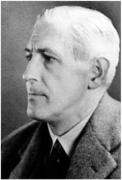|
|
||||||||||||||||||||||||
 |
Featured person
Recently added |
Rev Professor Samuel Edgar (1767 - 1826): |
||||||||||||||||||||||
Samuel Edgar was a Secessionist Presbyterian minister and Seceder’s Professor of Divinity at the Belfast Academical Institution (since 1831 the Royal Belfast Academical Institution).
Edgar was born at Gilford, County Down, son of a farmer who died young; Edgar was brought up by his uncle (also Samuel), who was a secessionist Presbyterian minister at Loughaghery, near Hillsborough, County Down. (The terms “Seceder” and “Secessionist” in the context of the Presbyterian Church of Ireland of the time, very basically, connote orthodox or evangelical views, and subscription to the Westminster Confession of Faith of 1646.) Edgar’s uncle ran a school where Edgar himself was educated, and was due to attend Glasgow University, but contracted tuberculosis. He survived this and eventually graduated MA at Glasgow in 1792. He was licensed to the burgher presbytery of County Down on 16 April 1793 and was ordained and installed as minister of the burgher secessionist congregation at Ballynahinch, County Down, on 20 November 1793, in succession to Rev John Sturgeon (“Burgher” secessionists were one faction of what would become simply Seceders or Secessionists after merger with “non-burgher” secessionists.)
Having married a cousin, Elizabeth McKee of Boardmills, County Down, in 1799 he bought some land at Ballykine, not far away, where he established a school. (He had one highly distinguished alumnus in James Thomson, who would become Professor of Mathematics at Belfast Academical Institution in 1815 and at Glasgow University in 1832, as well as publishing textbooks, and articles in the most distinguished journals, including in those of the Royal Society of Edinburgh and of the Royal Society, London; one of his sons was the future Lord Kelvin.) The previous year, 1798, had seen the great Rebellion led by the United Irishmen. Edgar himself was opposed to this island-wide insurrection, which in the end had been suppressed not without considerable force by the Government – in fact with considerable brutality, including judicial. Edgar was a witness to much of this as Ballynahinch had been one of the principal centres of military activity, and he intervened on behalf of innocent defendants condemned to death.
In more pacific times, he was appointed Clerk of the Burgher Secession Synod and the Professor of Divinity for the burgher secessionists at Belfast Academical Institution, in 1815. In 1818, when the burgher secessionists and the anti-burgher secessionists merged to become simply the secessionists, Edgar was appointed their Clerk of Synod; he was Moderator in 1820 and retained his Chair at Belfast Academical Institution.
Edgar recorded in writing some reminiscences of the 1798 Rebellion, which were published in 1825 in the Belfast Magazine, and later (1905) in the Irish Presbyterian. After his death, his son John, later a noted social activist as well as evangelist in English and Irish, was appointed successor to his Divinity Chair in Belfast, while his son David replaced him as Minister at Ballynahinch.
| Born: | 1767 |
| Died: | 1826 |
| Richard Froggatt |
| Bibliography: Brian Todd: A Remarkable Belfast Institution: The Royal Belfast Institution, 1810-2010, Belfast, RBAI, 2013; Dictionary of Irish Biography; John Jamison: The History of the Royal Belfast Academical Institution 1810-1960, Belfast, Mullan, 1959 |


Home | Our Policies | Plaques | Browse | Search | Sponsors | Links | Help | Contact
Privacy & Disclaimer | Cookie Policy | Site Map | Website Design By K-Point
© 2024 Ulster History Circle









